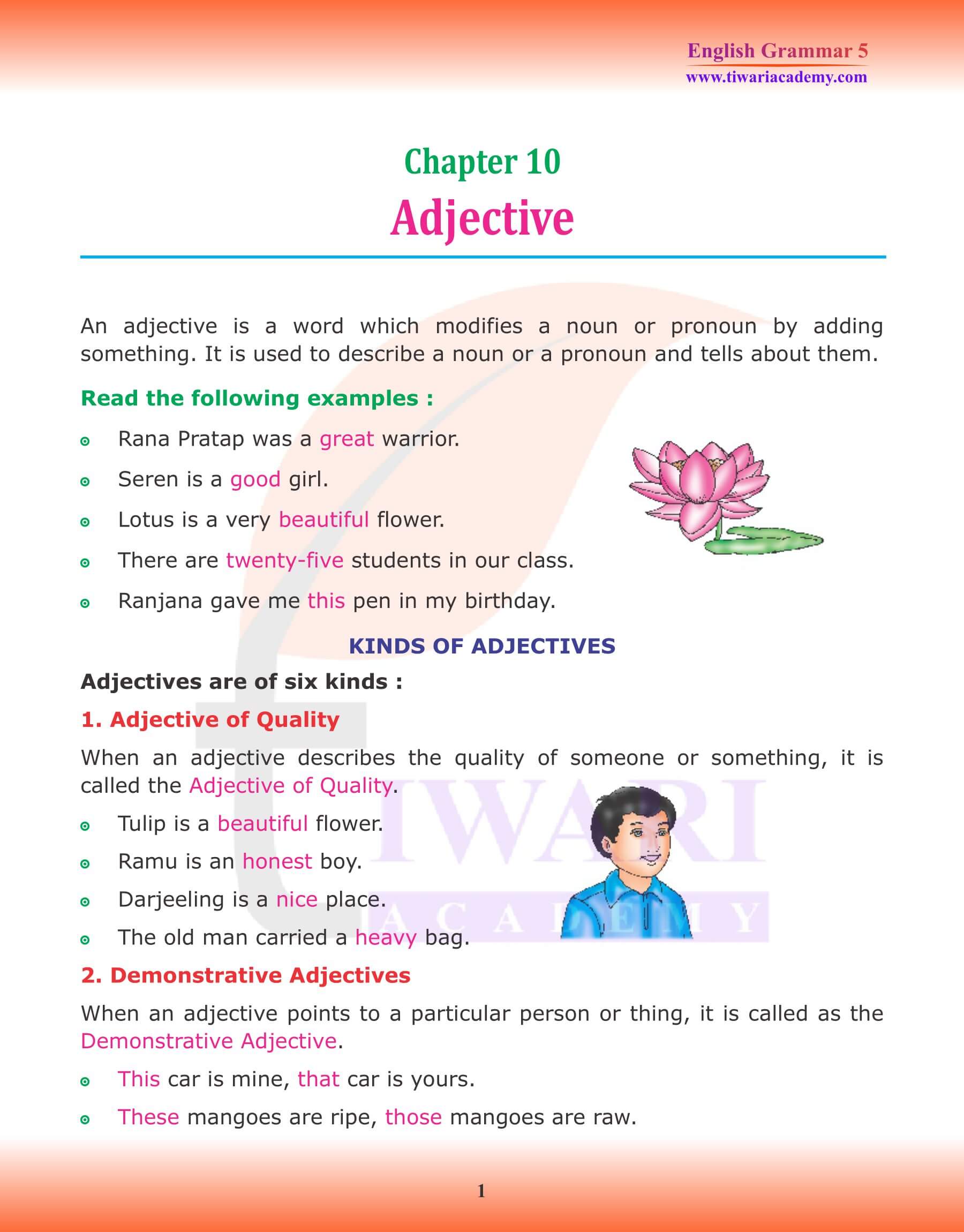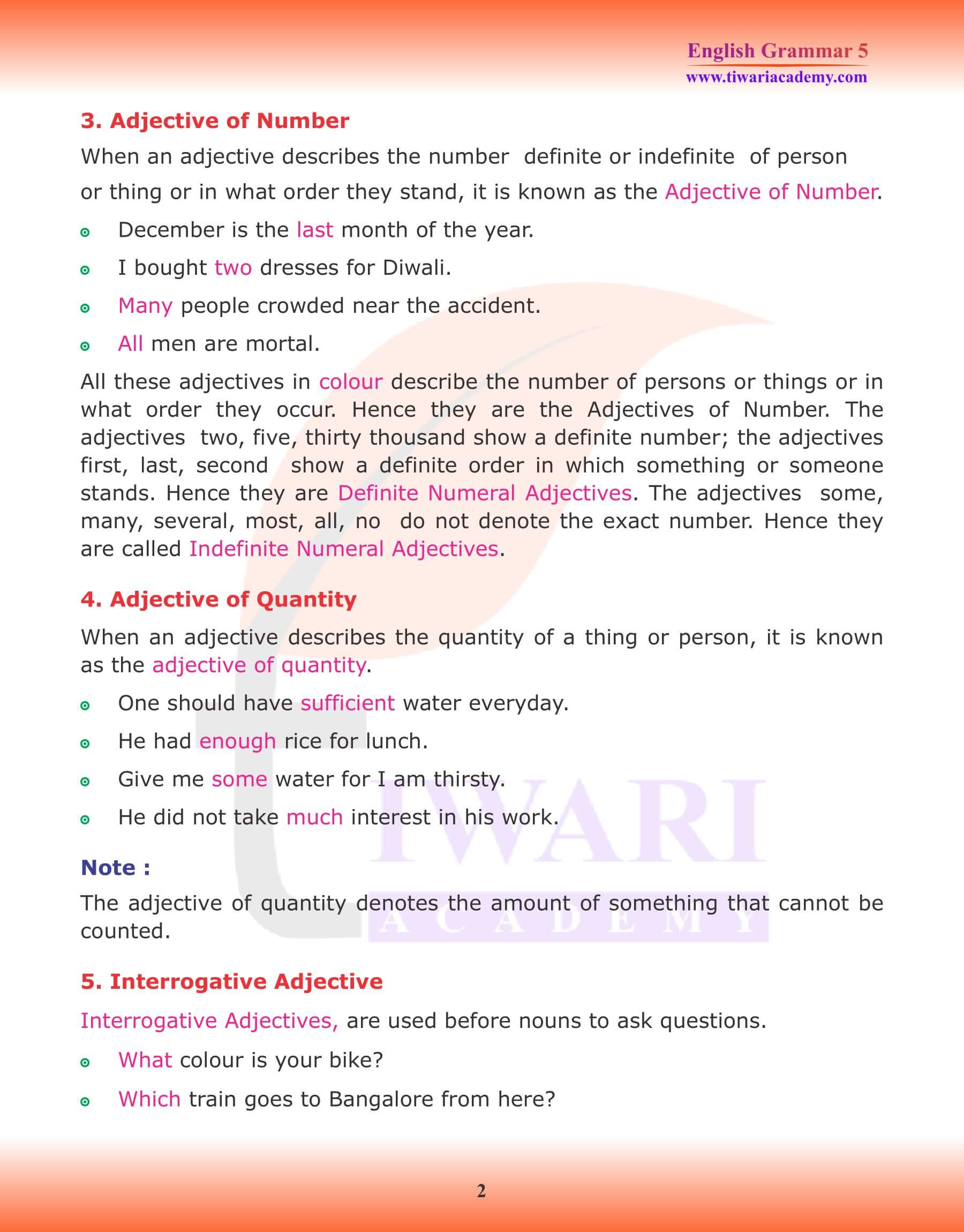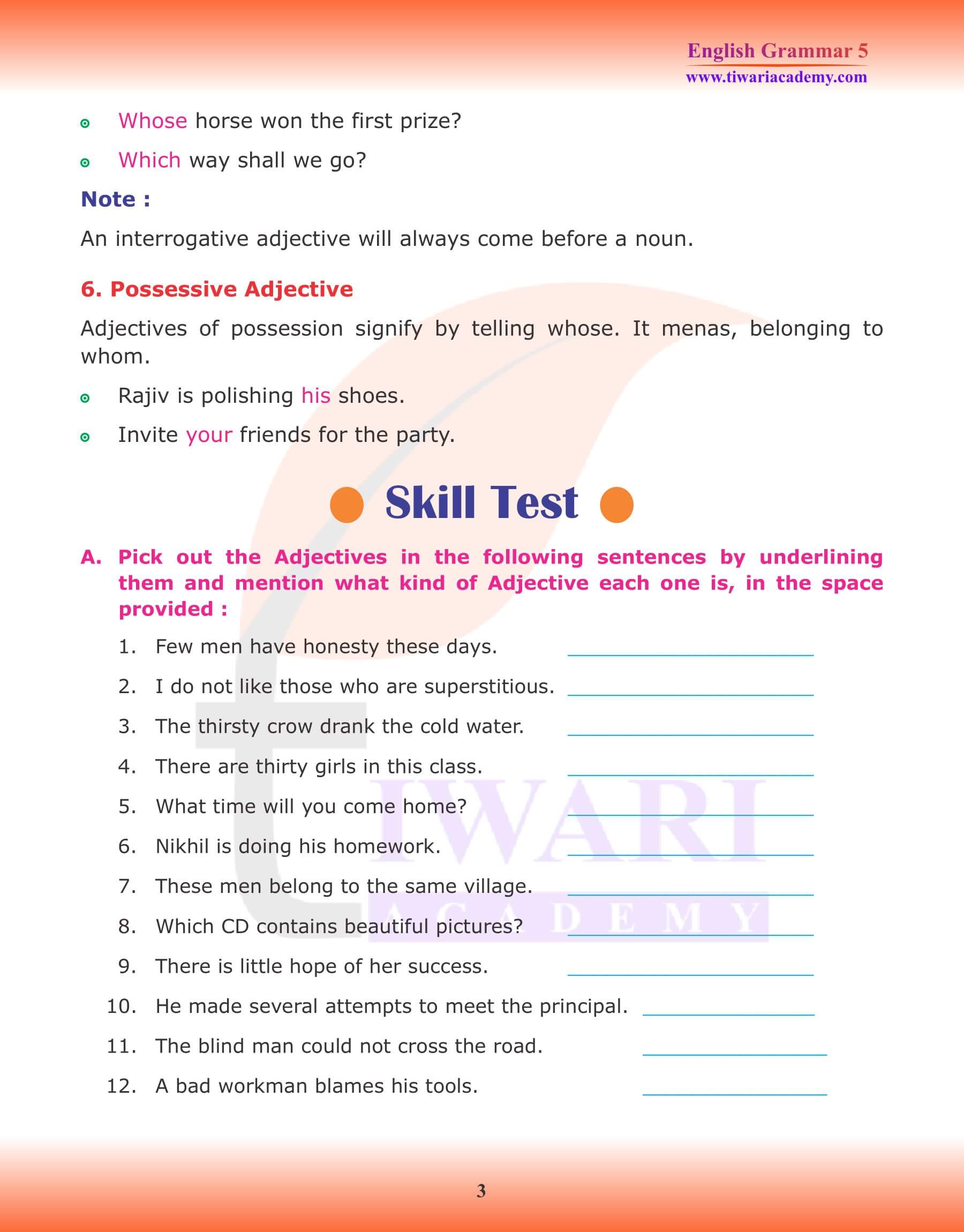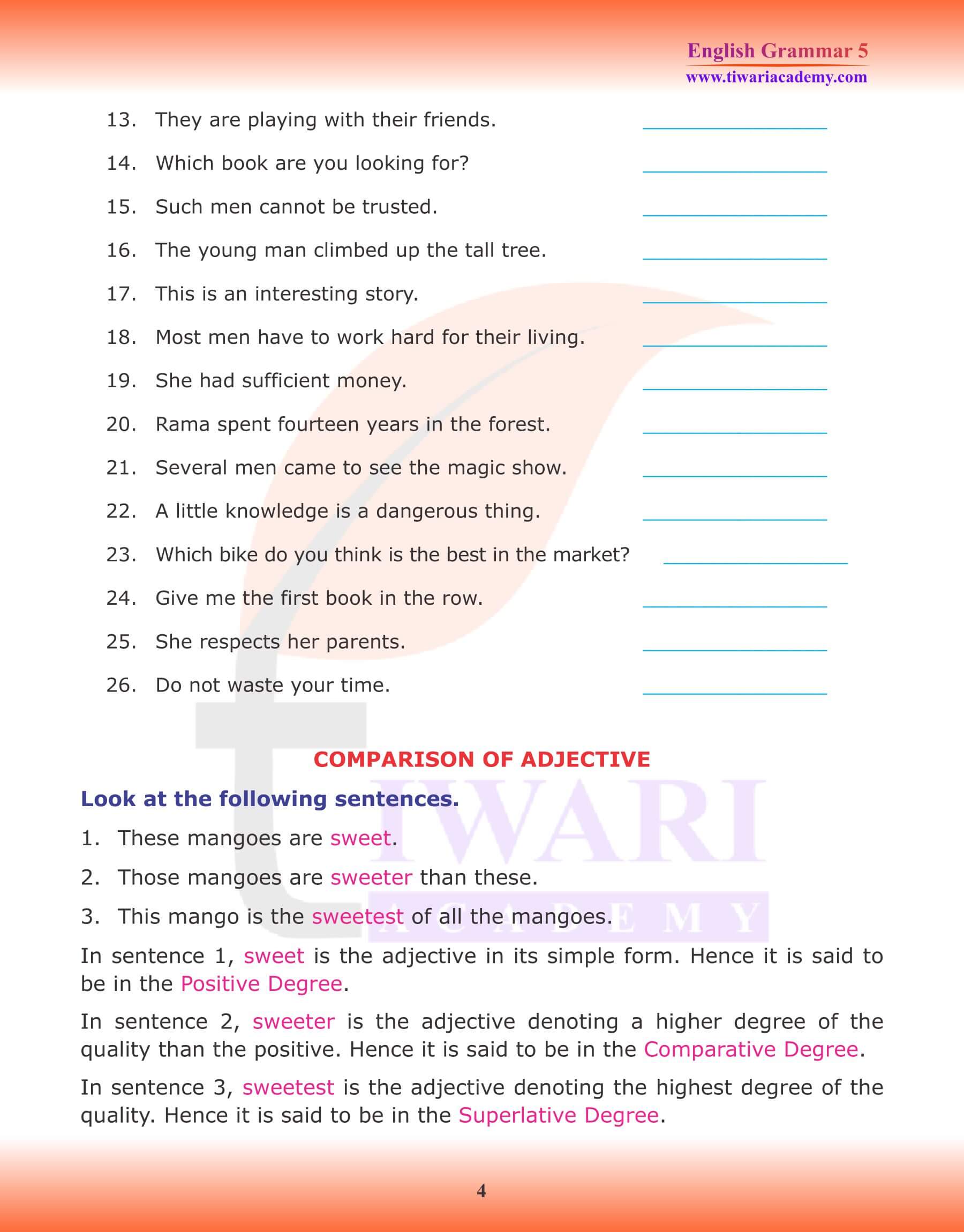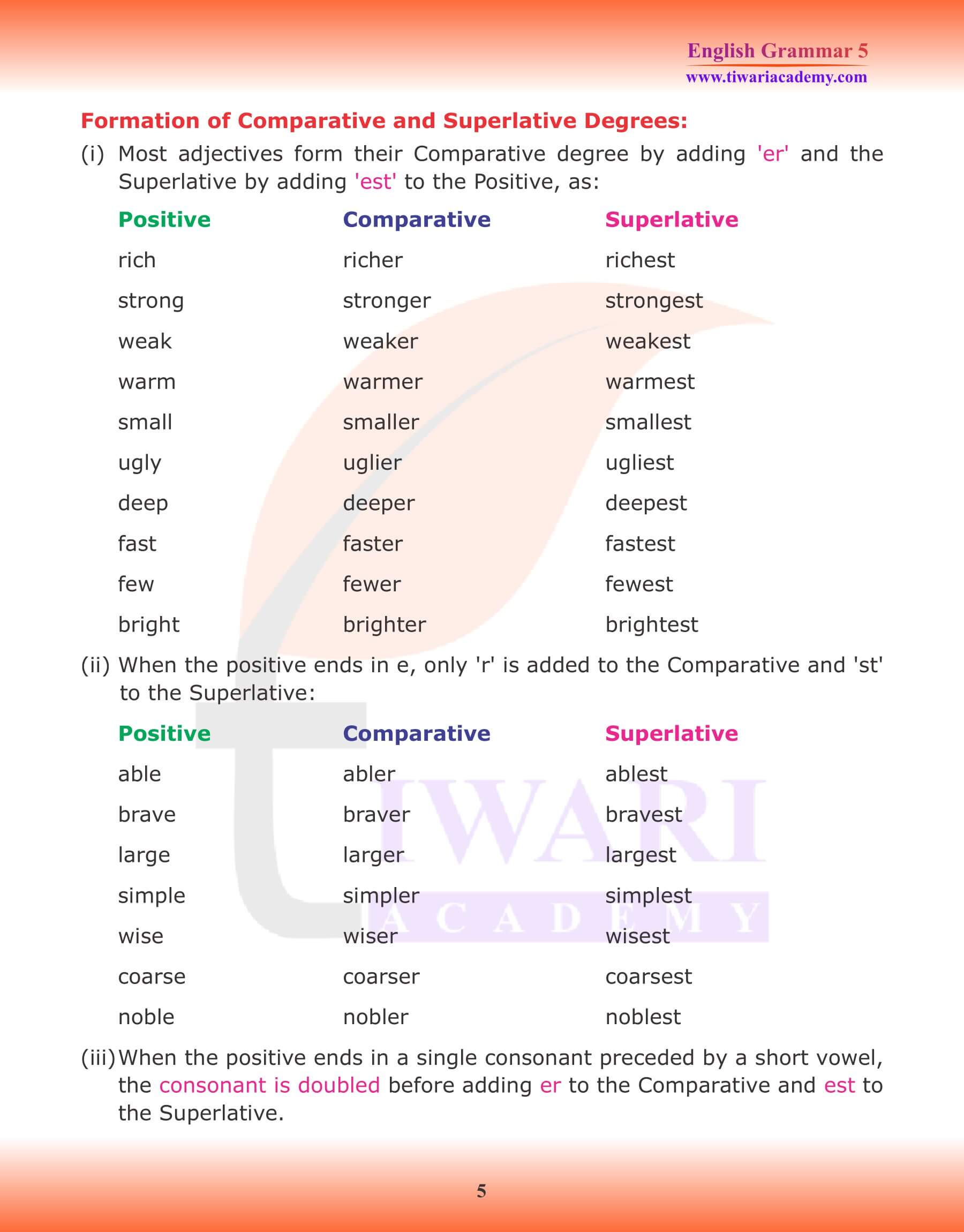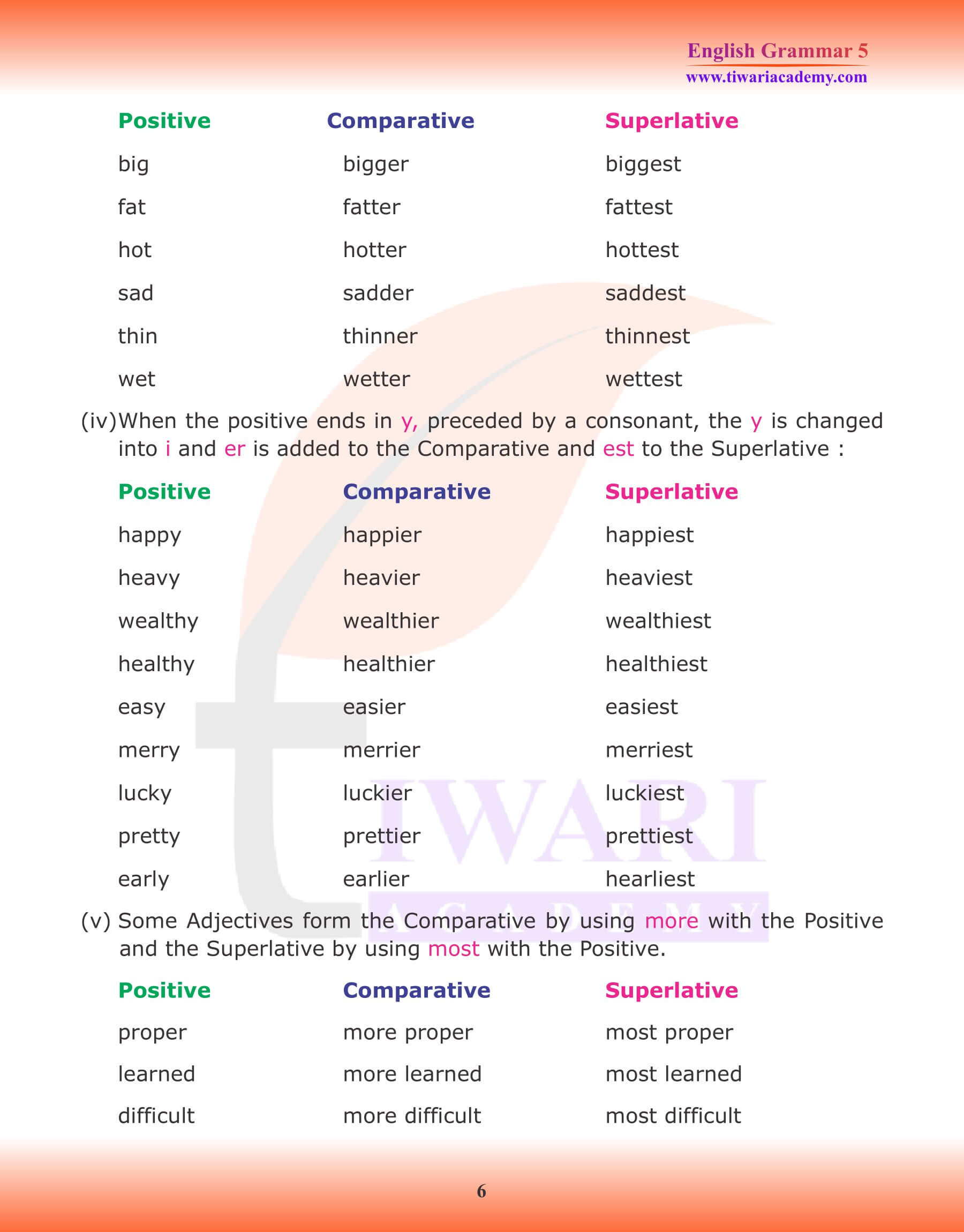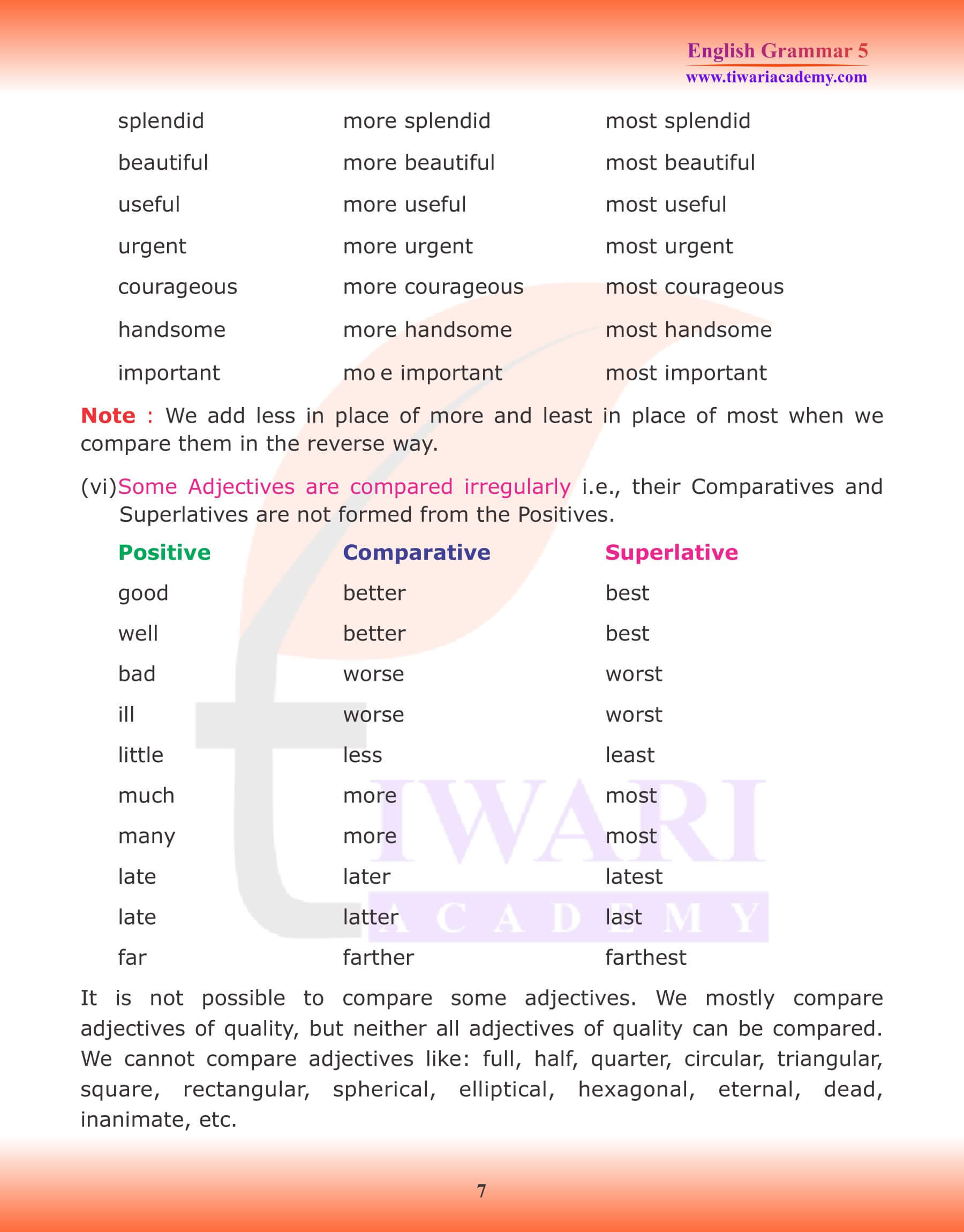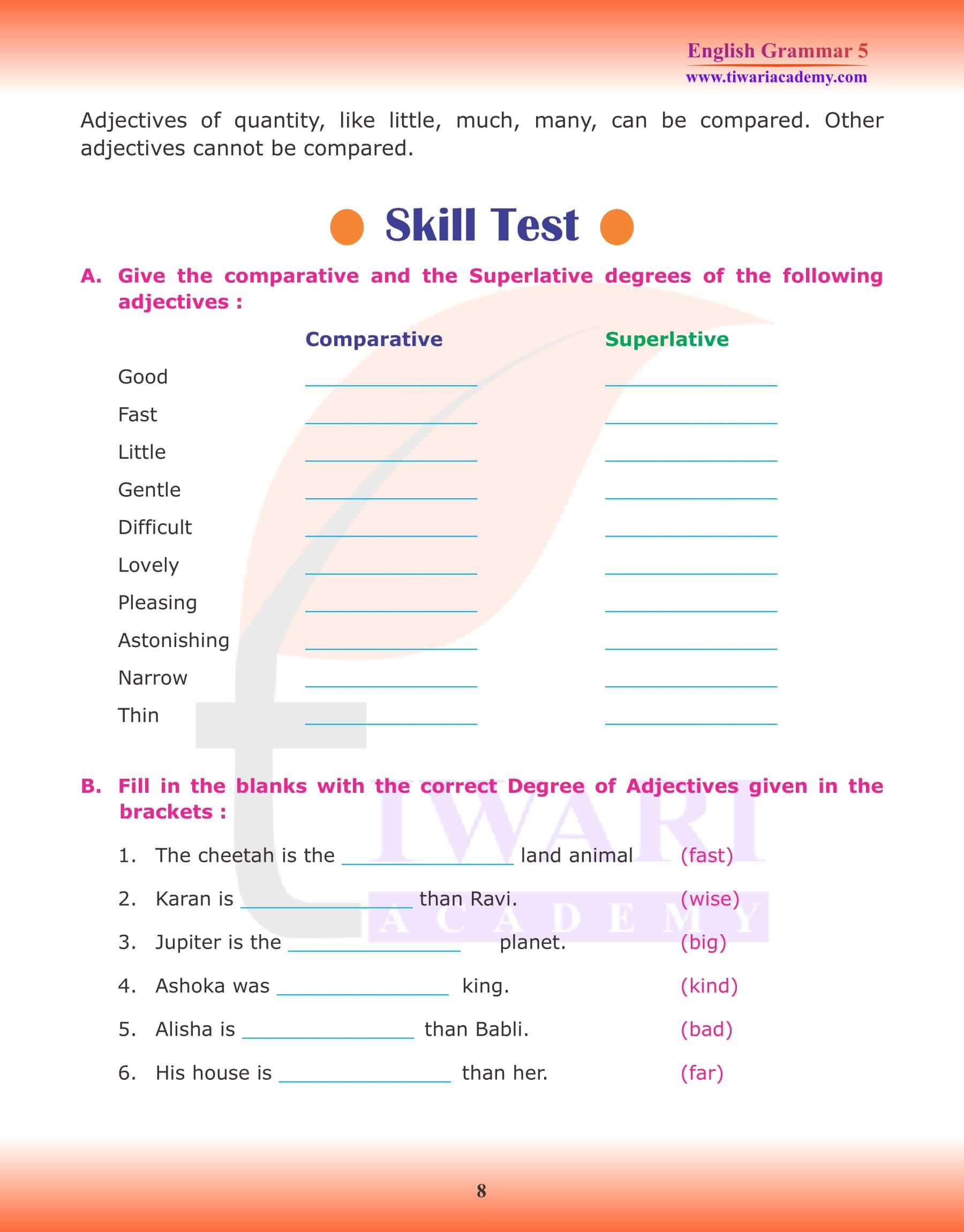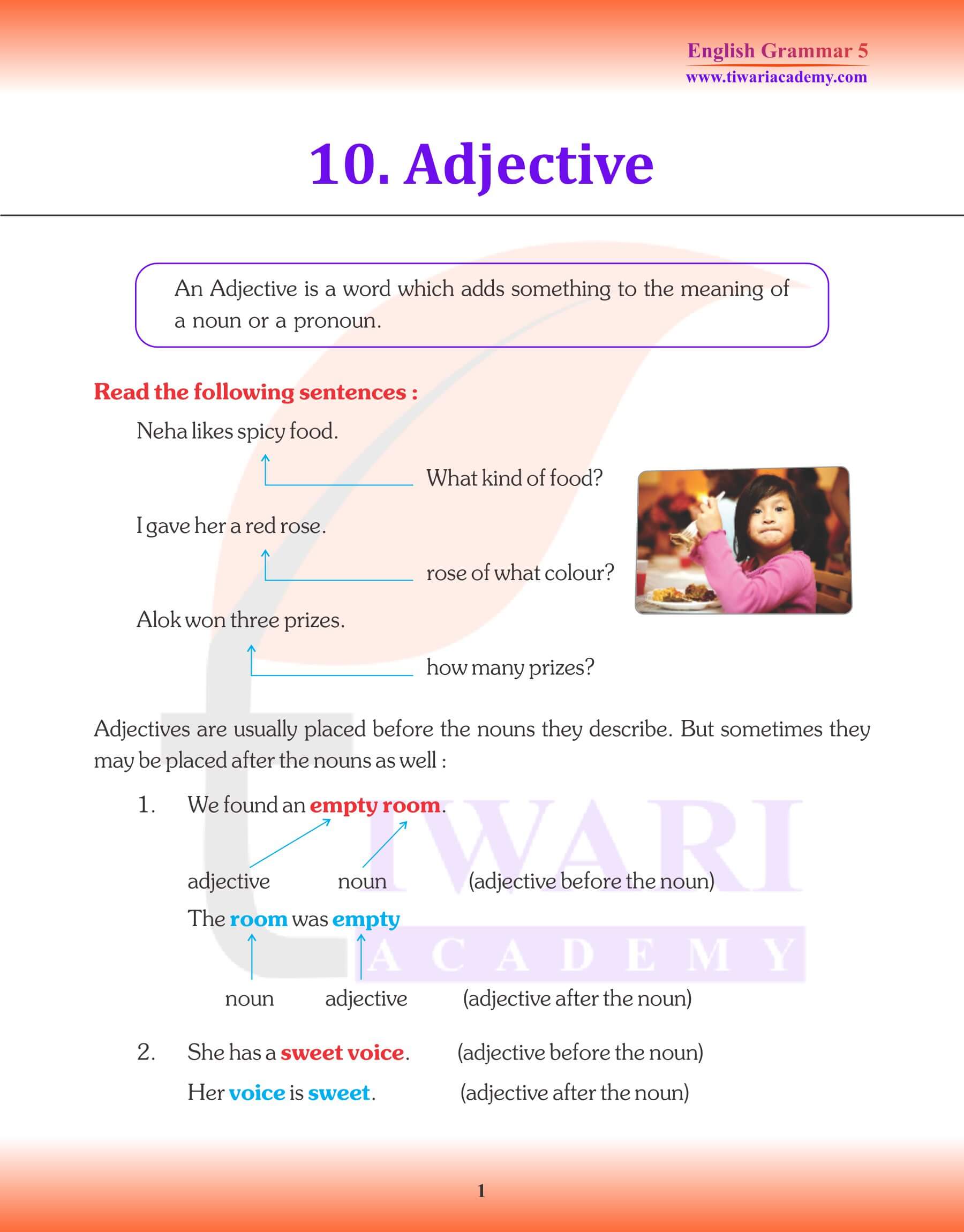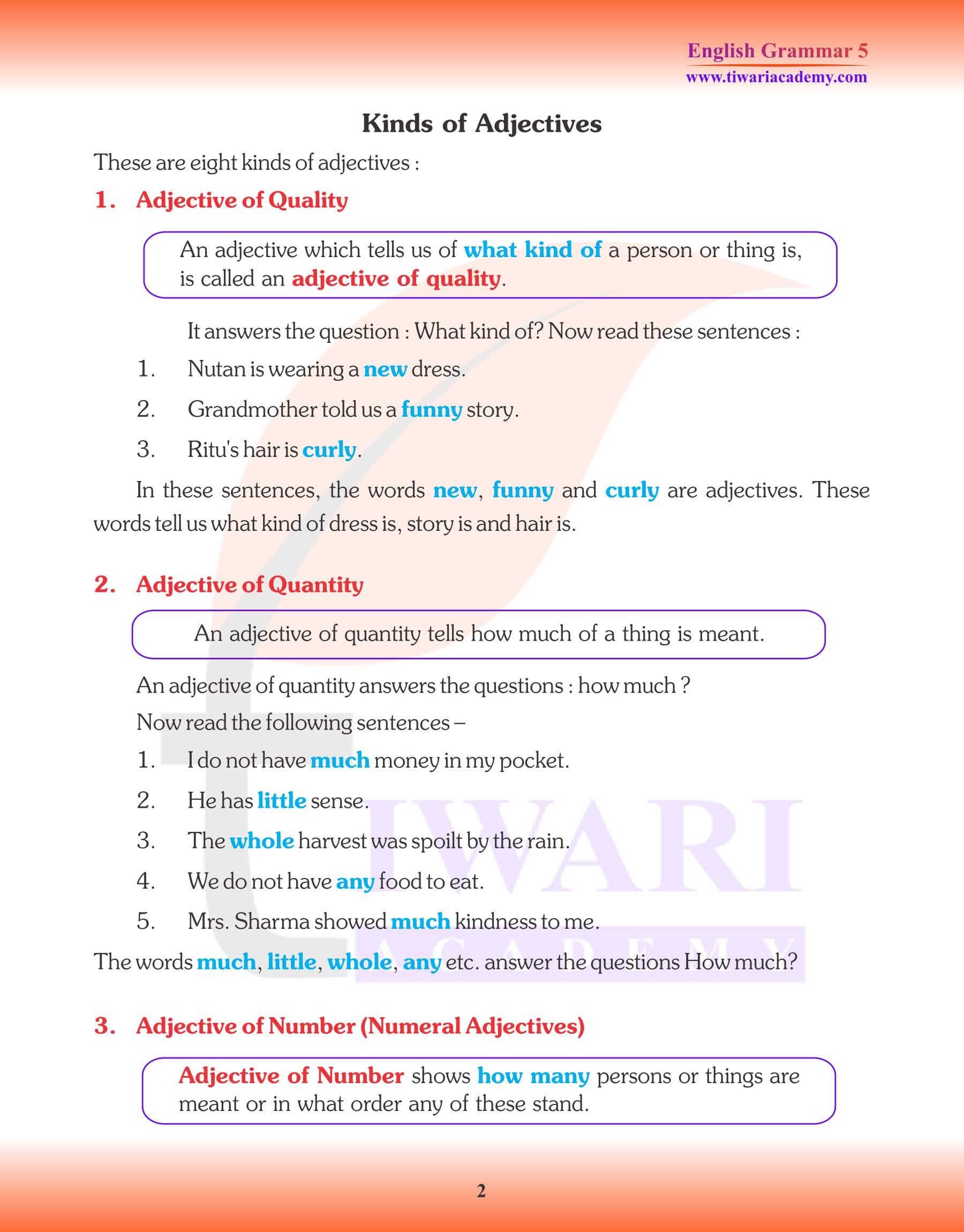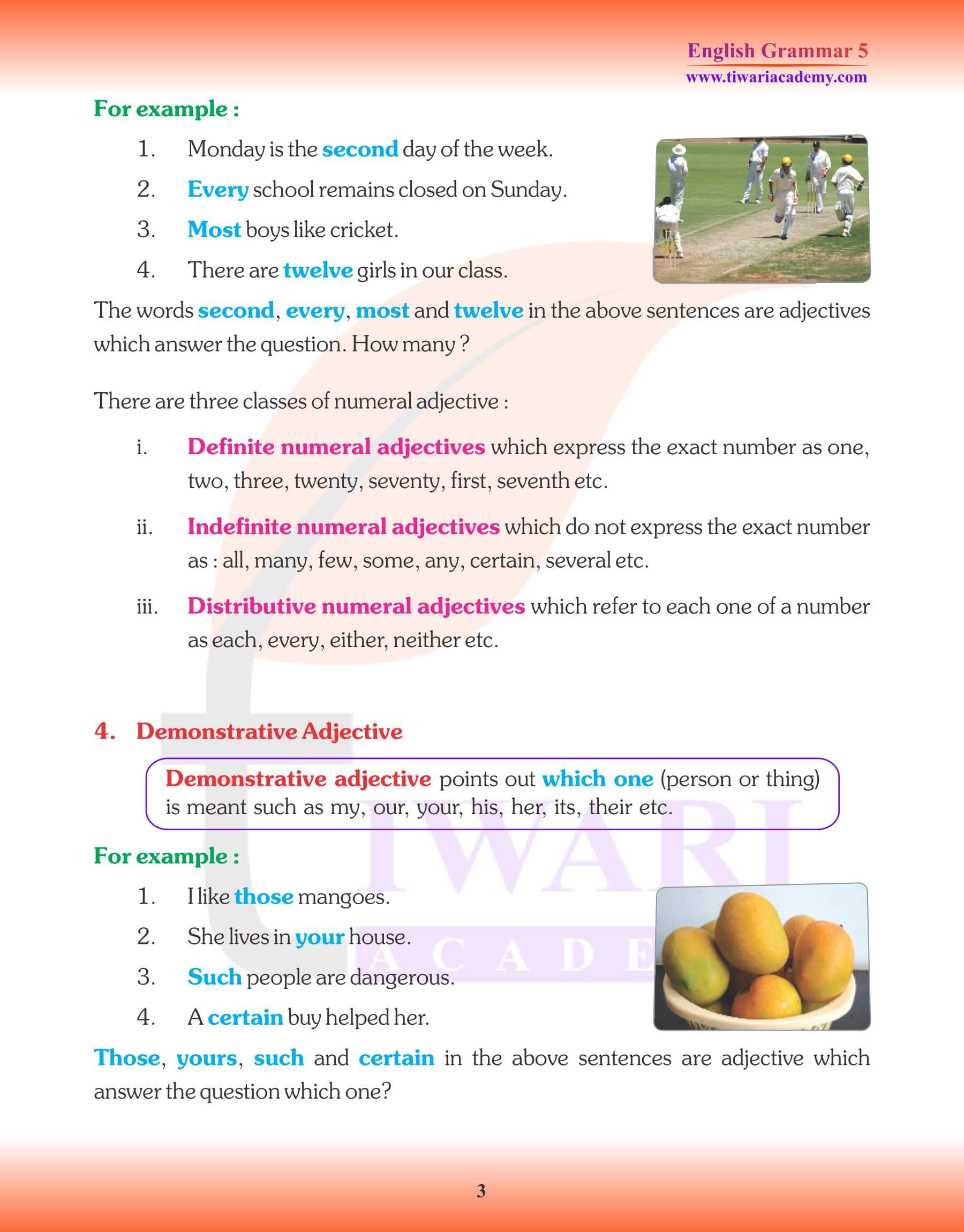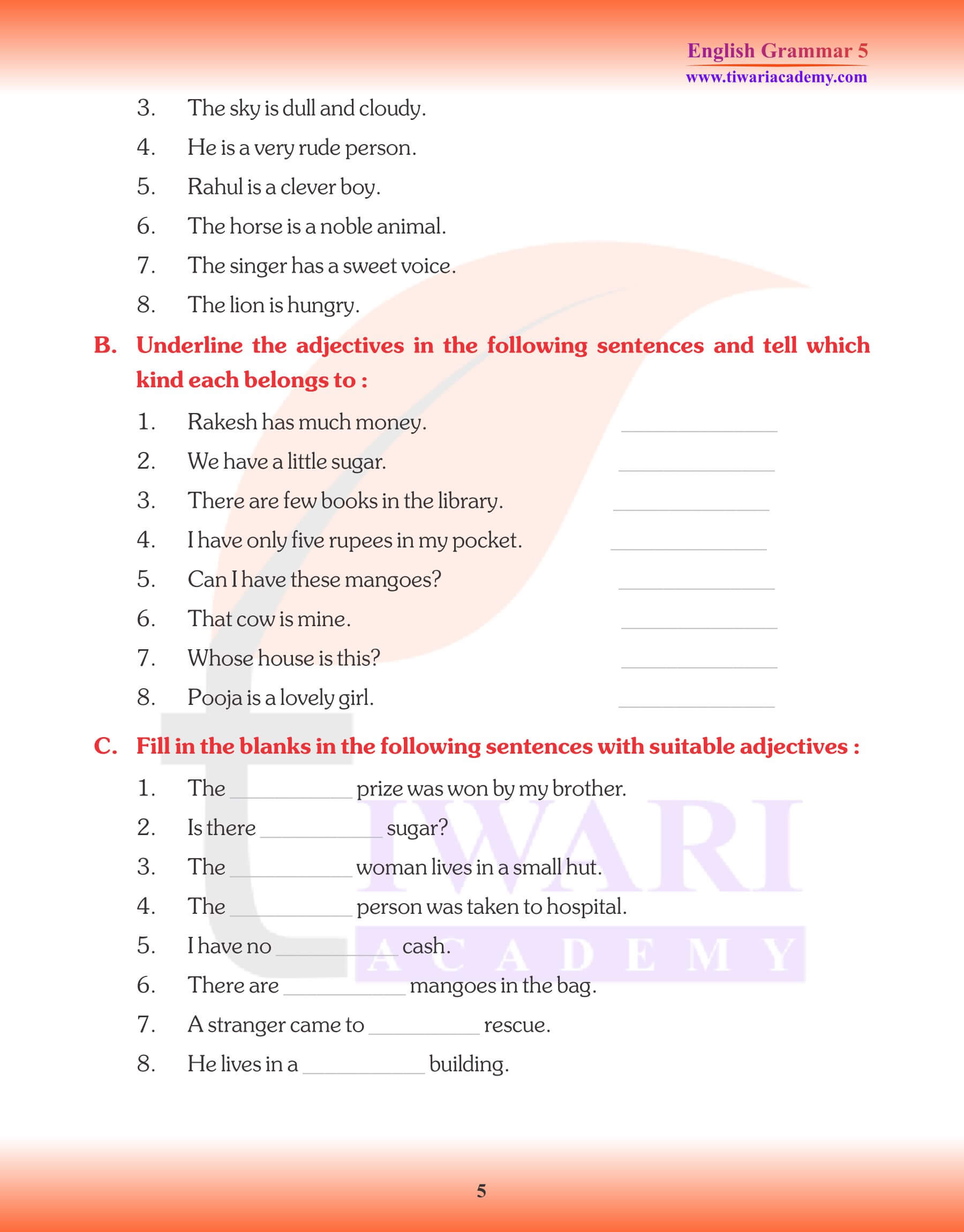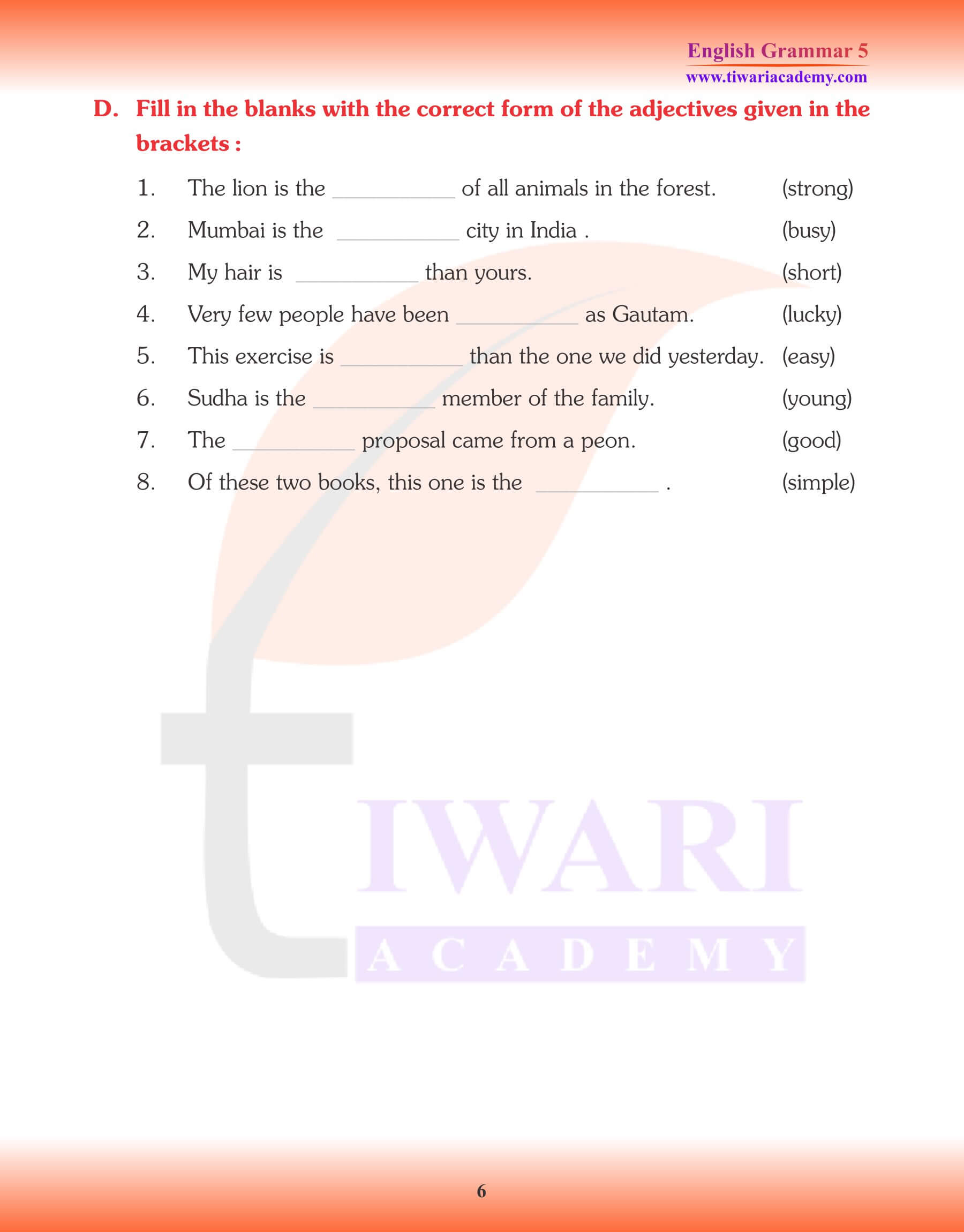NCERT Solutions for Class 5 English Grammar Chapter 10 Adjective and its uses updated for academic session 2025-26 for CBSE and State board free to use. An adjective is a word which modifies a noun or pronoun by adding something. It is used to describe a noun or a pronoun and tells about them.
CBSE Class 5 English Grammar Chapter 10 Adjective
Class 5 English Grammar Chapter 10 Adjective
| Class: 5 | English Grammar |
| Chapter: 10 | Adjective |
Adjective of Quality
When an adjective describes the quality of someone or something, it is called the Adjective of Quality. For example:
- Tulip is a beautiful flower.
- Ramu is an honest boy.
- Darjeeling is a nice place.
- The old man carried a heavy bag.
Demonstrative Adjectives
When an adjective points to a particular person or thing, it is called as the Demonstrative Adjective. For example:
- This car is mine, that car is yours.
- These mangoes are ripe, those mangoes are raw.
Adjective of Number
When an adjective describes the definite number or indefinite of person or thing or in what order they stand, it is known as the Adjective of Number.
Examples:
1. December is the last month of the year.
2. I bought two dresses for Diwali.
All these adjectives “last, two, many and all” describe the number of persons or things or in what order they occur. Hence they are the Adjectives of Number. The adjectives two, five, thirty thousand show a definite number; the adjectives first, last, second show a definite order in which something or someone stands. Hence they are Definite Numeral Adjectives. The adjectives some, many, several, most, all, no do not denote the exact number. Hence they are called Indefinite Numeral Adjectives.
Adjective of Quantity
When an adjective describes the quantity of a thing or person, it is known as the adjective of quantity.
examples:
1. One should have sufficient water every day.
2. He had enough rice for lunch.
Note: The adjective of quantity denotes the amount of something that cannot be counted.
Interrogative Adjective
Interrogative Adjectives, are used before nouns to ask questions.
Examples:
1. What colour is your bike?
2. Which train goes to Bangalore from here?
Note: An interrogative adjective will always come before a noun.
Possessive Adjective
Adjectives of possession signify by telling whose. It means, belonging to whom.
Examples:
1. Rajiv is polishing his shoes.
2. Invite your friends for the party.
COMPARISON OF ADJECTIVE
Examples of comparison of adjective:
1. These mangoes are sweet.
2. Those mangoes are sweeter than these.
3. This mango is the sweetest of all the mangoes.
In sentence 1, sweet is the adjective in its simple form. Hence it is said to be in the Positive Degree.
In sentence 2, sweeter is the adjective denoting a higher degree of the quality than the positive. Hence it is said to be in the Comparative Degree.
In sentence 3, sweetest is the adjective denoting the highest degree of the quality. Hence it is said to be in the Superlative Degree.
Formation of Comparative and Superlative Degrees:
(i) Most adjectives form their Comparative degree by adding “er” and the Superlative by adding “est” to the Positive, as:
| Positive | Comparative | Superlative |
|---|---|---|
| rich | richer | richest |
| strong | stronger | strongest |
| weak | weaker | weakest |
| warm | warmer | warmest |
| small | smaller | smallest |
| ugly | uglier | ugliest |
(ii) When the positive ends in e, only ‘r’ is added to the Comparative and ‘st’ to the Superlative:
| Positive | Comparative | Superlative |
|---|---|---|
| able | abler | ablest |
| brave | braver | bravest |
| large | larger | largest |
| simple | simpler | simplest |
| wise | wiser | wisest |
| coarse | coarser | coarsest |
(iii) When the positive ends in a single consonant preceded by a short vowel, the consonant is doubled before adding er to the Comparative and est to the Superlative.
| Positive | Comparative | Superlative |
|---|---|---|
| big | bigger | biggest |
| fat | fatter | fattest |
| hot | hotter | hottest |
| sad | sadder | saddest |
| thin | thinner | thinnest |
| wet | wetter | wettest |
(iv) When the positive ends in “y” preceded by a consonant, the “y” is changed into “I” and “er” is added to the Comparative and “est” to the Superlative:
| Positive | Comparative | Superlative |
|---|---|---|
| happy | happier | happiest |
| heavy | heavier | heaviest |
| wealthy | wealthier | wealthiest |
| healthy | healthier | healthiest |
| easy | easier | easiest |
| merry | merrier | merriest |
(v) Some Adjectives form the Comparative by using more with the Positive and the Superlative by using most with the Positive.
| Positive | Comparative | Superlative |
|---|---|---|
| proper | more proper | most proper |
| learned | more learned | most learned |
| difficult | more difficult | most difficult |
| splendid | more splendid | most splendid |
| beautiful | more beautiful | most beautiful |
| useful | more useful | most useful |
Note: We add less in place of more and least in place of most when we compare them in the reverse way.
(vi) Some Adjectives are compared irregularly i.e., their Comparatives and Superlatives are not formed from the Positives.
| Positive | Comparative | Superlative |
|---|---|---|
| good | better | best |
| well | better | best |
| bad | worse | worst |
| ill | worse | worst |
| little | less | least |
| much | more | most |
What is adjective in Class 5 English Grammar Chapter 10?
An adjective is a word which modifies a noun or pronoun by adding something. It is used to describe a noun or a pronoun and tells about them.
examples:
(i). Rana Pratap was a great warrior.
(ii). Serena is a good girl.
Here great, good are presenting quality of Rana Pratap and Serena hence these are adjectives.
How many types of adjective are there in Chapter 10 of Class 5 English Grammar?
The adjectives are six types:
(i). Adjective of Quality
(ii). Demonstrative Adjective
(iii). Adjective of Number
(iv). Adjective of Quantity
(v). Interrogative Adjective
(vi). Possessive Adjective
What is demonstrative adjective according to 5th English Grammar Chapter 10?
When an adjective point to a particular person or thing, it is called as the Demonstrative Adjective.
Ex.:(i). This car is mine, that car is yours.
(ii). These mangoes are ripe; those mangoes are raw.
What is adjective of quantity in Class 5th English Grammar Chapter 10?
When an adjective describes the quantity of a thing or person, it is known as the adjective of quantity.
Ex.: (i). One should have sufficient water every day.
(ii). He had enough rice for lunch.
